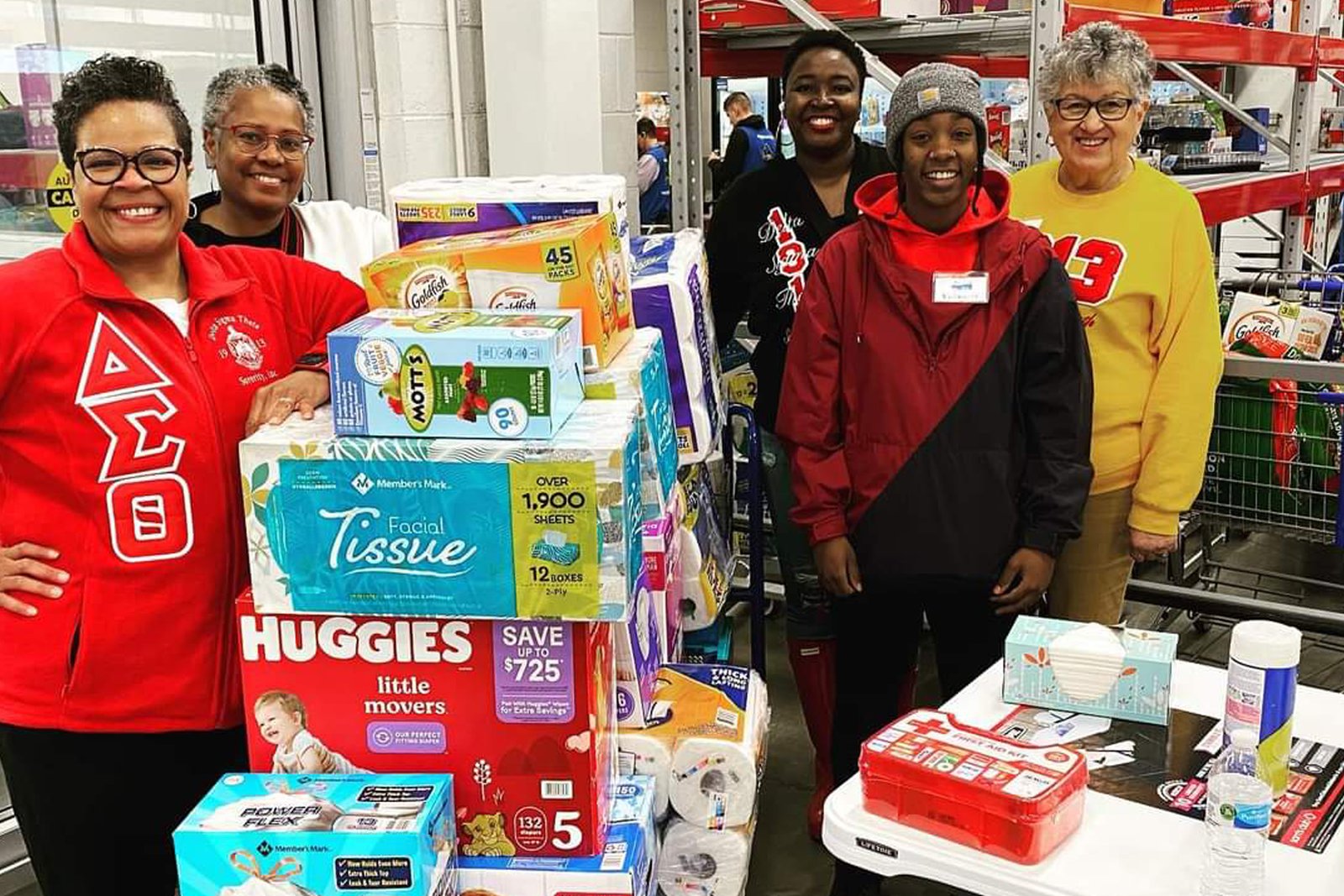Community Service
(2012-present) For over a decade, the Lincoln Alumnae Chapter has participated in the annual Safe Quarters Fundraiser. Did you know that 1 in 3 women in Nebraska have reported experiencing sexual violence, physical violence, and/or stalking by an intimate partner during her lifetime?
At Friendship Home, just $20 will provide 40 meals for a survivor of domestic violence while housed in a safe emergency shelter. 33% of Friendship Home’s yearly income is derived from donations and special events, such as Safe Quarters.
Crisis Services
We understand that domestic violence is a complex issue, and there are often multiple reasons a survivors cannot “just leave” an abusive relationship. Advocates work with each survivor to assess current risk and determine options and resources. If Friendship Home shelter beds are full or if a survivor needs time to consider options, staff provide supportive services until shelter space is available. This includes basic needs assistance with food, clothing, and personal care items.
All services at Friendship Home are voluntary and guided by the survivor’s self-identified needs. For survivors identifying mental or physical health concerns, Friendship Home offers short-term mental health and substance abuse counseling and assistance accessing medical and behavioral health resources. Friendship Home’s Health Care Navigator assists survivors and their children to secure medical help they can trust and to access the care they need.
Emergency Shelter
At Friendship Home we understand that leaving may not end an abusive partner’s violence. In fact, an abusive situation often escalates when a survivor attempts to leave the situation.
Friendship Home provides safe, secure, and confidential shelter options for survivors and their children at this critical moment. Trauma-informed shelter options include communal shelter and single-family apartments. During a shelter stay, advocates and case managers work alongside survivors and empower them to reach their goals.
Domestic violence impacts all family members. Through one-on-one advocacy and support groups, children’s advocates focus on the youngest survivors that we serve. From newborn infants to youth, all children who enter our doors are provided a safe place to share their experiences and begin to heal.
Transitional Housing
Household Items Drive


